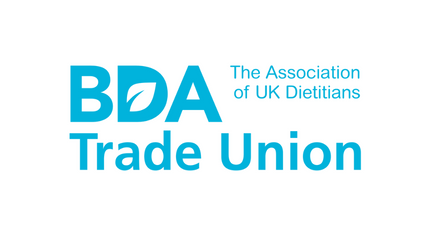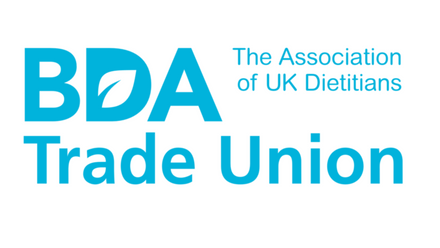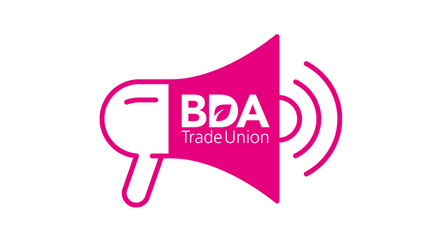Katrina Evans explains how the BDA Trade Union supported her in her time of need – and how the experience inspired her to get involved.
It started with a horrific experience. I was sent home suspended for gross misconduct relating to inappropriate email use. To say I was in shock at this is an understatement. I was surprised that I didn’t faint or throw up in the meeting and I can’t really remember that much from it. I was frog-marched out of the building and told that I couldn’t speak to anyone from work.
When I got home, I could hardly think at all and struggled to even make a cup of tea. I hadn’t had a huge amount to do with the BDA up to this point, but they were fantastic.
I can’t remember the number of times I was on the telephone to Stephen Austin, the BDA’s National Employment Relations Officer, in tears because I was terrified that I would lose my job and career. I had convinced myself that I would be struck off the register as well as getting sacked and lose my home and pretty much everything else that I held dear.
The first thing that I did right after I made that cup of tea was to phone the BDA immediately. I was probably a nightmare to deal with as I was all over the place emotionally and very, very frightened.
But Stephen listened to me and got the information that he needed from me and then pretty much took over from there. Anything that I got from human resources or management was copied and sent to the BDA office, although he was already copied into most of it, and it was added into my case file.
We then had the investigation meeting, which Stephen attended with me. Having got myself into trouble with my big mouth, I thought it best if I just shut up and it was quite difficult for anyone to get me to speak at all! We went over what I had done and why I shouldn’t have done it and that was it for that meeting. I was just as terrified as before, but Stephen spoke up for me and drew attention to other things that I had done to support my team and the organisation. He also pointed out that most of us have sent an email that perhaps we shouldn’t have and that nothing malicious had been intended by it.
I had lost about a stone in weight at this point with the stress of it all and was really struggling. Stephen asked me what I could do to take my mind off it and riding my pony was the answer. Molly got very fit and I managed to get a bit of headspace and calm down a bit.
The next meeting was the disciplinary hearing for gross misconduct, where my punishment would be decided. Again, I said as little as possible and let Stephen do the talking. It was quite a short meeting, going over the points from the investigation before breaking for them to decide on the sanction, which was a nerve-wracking wait for me. We were both delighted that I was given a three-month written warning along with refreshing mandatory training. This was the least that I could have expected, with the worst-case scenario being dismissal, although Stephen was always at pains to stress that hopefully this was unlikely and that we would be able to appeal even if it did happen.
There are two important points to learn from this for us all. Firstly, it is crucial to all cases, no matter how small they seem, that the Trade Union Representative is involved as early as possible. This means that the Trade Union Representative is in there from the beginning ensuring that the member is dealt with fairly and without prejudice. In my experience, representatives are often the ones that are prepared to think outside of the box for solutions to problems. For example, offering alternative work if a member is injured and unable to do their usual duties.
Secondly, be very careful what you share via email, WhatsApp groups and other forms of social media. Keep it uncontroversial and, if it relates to work, keep personal opinions to yourself. Better still, have a conversation, particularly for difficult topics, and only involve the people who need to be involved.
This dreadful experience was the catalyst to me thinking about becoming a Trade Union Representative myself. We didn’t have a representative in our service at the time and cases involving gross misconduct were then dealt with by the full-time officers at the BDA. Now, with officer support, a trained representative deals with such cases. I was keen to support colleagues caught up in any process, having realised how stressful it can be and how valuable support is.
Having said this, I wasn’t sure the BDA would want me, as I felt tarnished by the whole process. How wrong I was! I was welcomed with open arms and encouraged to go on the training provided, which I did at the earliest opportunity. At the time, this was provided in-house at the BDA offices, so we all got to meet other BDA staff at the same time. The new training is run with support from the BDA but is hosted by the Trades Union Congress (TUC) and Manchester College. It is a great chance to network with representatives from all over the UK.
Since becoming a representative, I have worked on some big things, such as the safe caseload toolkit with the BDA, becoming the North East Regional BDA Representative and then one of the England Representatives and also Vice Chair of Trade Union National Executive Committee, attending the inaugural BDA Trade Union conference and attending the Trades Unions Congress Women’s Conference to present a motion this year. I was glad it was online as it was a bit less nerve wracking not getting up in front of a big audience!
But much of a representative’s work is in the small day-to-day things: making sure new members of staff know who I am and what support I can give or supporting members struggling with ill health, caring responsibilities or needing extra equipment at work to help them as part of reasonable adjustments.
There is also the staff side work of engaging with human resources and senior management to review policies and write new ones. I’ve done a lot of policy work as I have found that, being a smaller union, we have less case work than bigger unions. Being in a smaller union also means I have a seat on our Joint Partnership Committee (sometimes called Joint Negotiating Committee or Joint Consultative Committee). Not long after starting as a representative, I stepped up to become Staff Side Secretary too.
These activities have all raised the profile of our profession within my trust and developed a network of other representatives I can go to for advice. Even now, I often feel like I don’t really know what I’m doing, but then someone asks me something and I surprise myself with just how much I do know and have learned along the way. Make sure you attend staff side to get a feel for the issues in your trust and to raise your own concerns. If you volunteer to help review a policy you will be welcomed with open arms and it’s a great way to get to know other representatives and human resource colleagues and learn about the policy itself too. If you are unsure, remember, the TU office can help.
When COVID-19 started, my trust pulled staff side into all of the decision-making meetings. I have attended our tactical and IPC & PPE meetings for staff side and developed good links with other parts of the trust that I had not been in contact with before. This has been a lot of work with daily meetings that have all had to have the time worked back for our service with early starts and late finishes. But it has been worth it to have been involved at the sharp end of decisions to keep our staff and patients safe, and has further raised the profile of dietetics and also the role of trade unions in general.
At the same time, we developed our regional BDA Representative Network to have regular online meetings, monthly at first as so much was happening and now bi-monthly (ish). This has been crucial to allow us all to keep abreast of what other trusts in our area are doing and how they are dealing with nationally mandated changes. It has also meant that I can take issues direct to the BDA and Trade Union National Executive Committee, make sure that representatives’ voices are heard at national level, and then feed back any answers.
The work at tactical level has led to new work to provide support for our staff and the development of our health and wellbeing groups and a more proactive plan for supporting staff dealing with stress. Our trust is also starting to work on developing a Restorative Justice Culture, with almost 50 members of human resources, management, organisational development and staff side all going on the training for this. Exciting times ahead!
If you are interested in becoming a BDA Trade Union Representative, find out more here.





